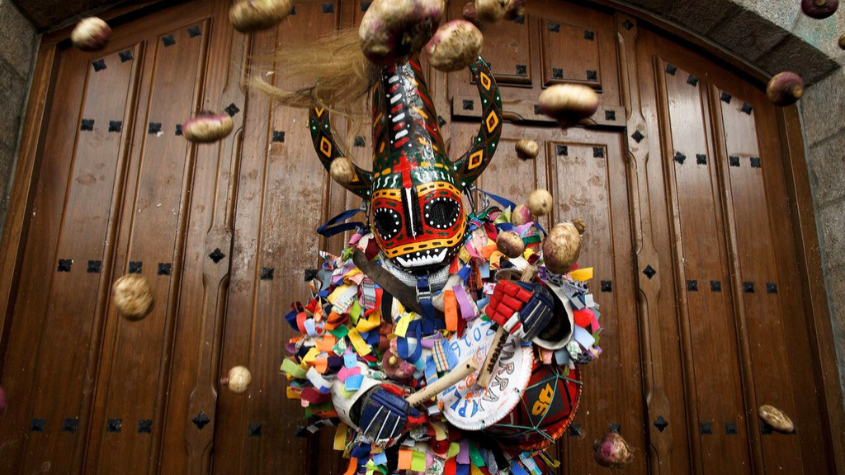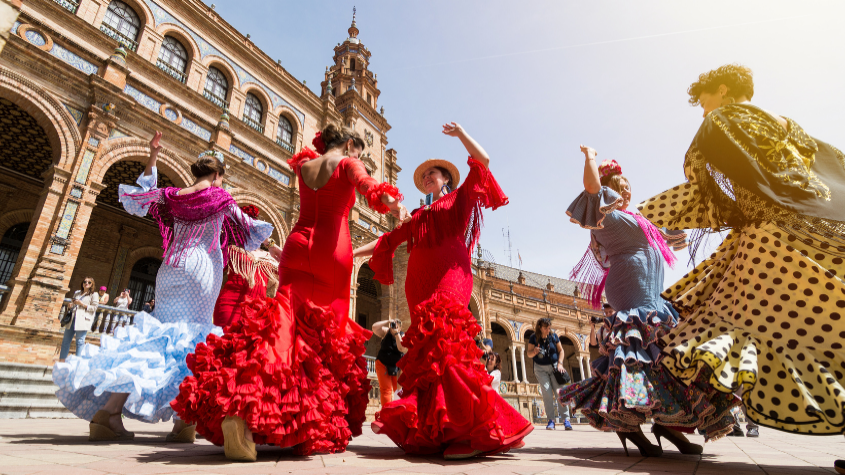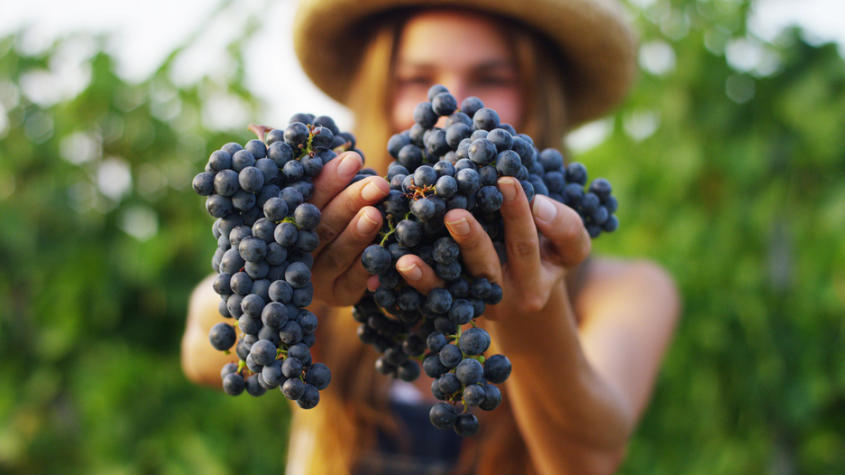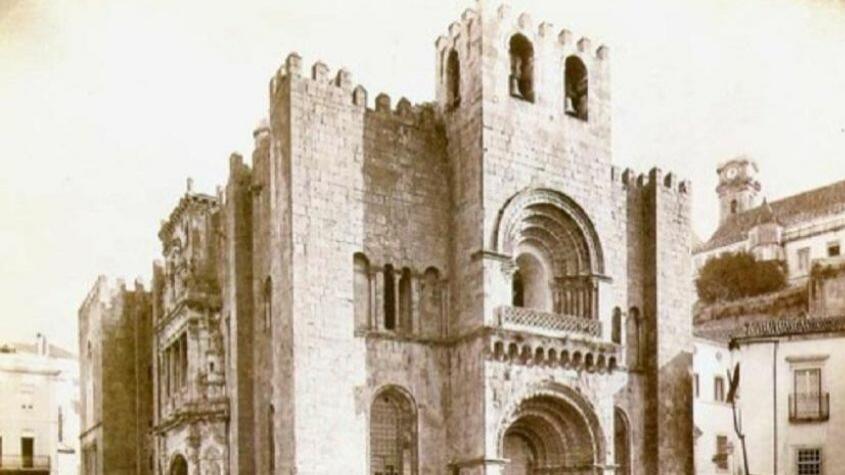
Strange Curiosities in Spain
Spain, known for its paella and flamenco, is also home to some of the world's strangest curiosities and traditions. Discover some of the peculiarities that make Spain such a unique and interesting country.
La Tomatina

La Tomatina is a festival that takes place on the last Wednesday in August in the town of Buñol. It's a tomato war, where thousands of people have fun throwing ripe tomatoes at each other. Around 150 tonnes of tomatoes are distributed by trucks to the participants.
The "Caganer": an Intruder in the Crib

In Catalonia, the representation of the birth of Jesus often includes a peculiar figure known as the "caganer" - a doll doing its business. This tradition, which dates back to the 17th century, is a symbol of fertility and luck, believed to bring prosperity to people and crops.
A Crocodile in the Cathedral

Seville Cathedral is shrouded in mystery and legend, all because of a life-size alligator hanging from the ceiling of the cathedral's Patio de los Naranjos. It is said that the crocodile was a gift from the Sultan of Egypt to King Alfonso X of Castile in the 13th century. The sultan allegedly sent the crocodile, along with other exotic gifts such as an elephant canine and a domesticated giraffe, to ask for Alfonso's daughter's hand in marriage. The king refused the proposal, but kept the gifts.
Explore other mysterious and paranormal curiosities on an excursion in Seville.
"Little Cleanliness" is a sign of Good Food

In Spain's traditional bars and restaurants, don't be surprised to see used napkins on the floor. Far from being considered dirty, this is a sign that the food is good and that the establishment is popular.
Human Castles

Human Castles, or Castellers, are a cultural tradition in Catalonia. They consist of forming multi-storey human towers with people leaning on their shoulders and hands. The Castellers are a symbol of Catalan identity and cohesion and were declared Intangible Cultural Heritage of Humanity by UNESCO in 2010.
Explore Spain's UNESCO Intangible Heritage.
Vegetables as Punishment

When you were a child, do you remember that eating soup was like a punishment? During the Jarramplas Festival in Ávila, a person dressed as Jarramplas, a character who wears a colourful mask and a costume with thorns, walks through the streets while the locals throw vegetables at him as a form of punishment for supposed crimes.
Discover Ávila on a private excursion from Madrid.
Offering food and drink to the dead

The Day of the Faithful Departed, also known as the Day of the Dead or the Day of the Souls, is a date that the Catholic Church dedicates to the dead and their souls. In some regions, it is customary to leave offerings of food and drink on gravestones, believing that the dead can be spiritually nourished by the goods offered.
Procession of the Coffins

The Procession of the Coffins is a religious tradition that takes place every year in the village of Santa Marta de Ribarteme in Galicia. In this procession, people who have narrowly escaped death are carried in open coffins by their relatives to thank or ask for help from Santa Marta, the patron saint of urgent and impossible causes.
Giant Omelette Festival

The Festival, also known as the "Fiesta de la Tortilla Gigante", is an annual event that takes place in several towns in Spain, mainly in the Extremadura region. The tradition involves making giant omelettes as a way of celebrating the harvest and bringing the community together.
Dispute over sticks and ink

El Cascamorras is a unique tradition that takes place every year in the town of Baza, in the province of Granada. The celebration, which dates back to the 13th century, involves a masked character called Cascamorras, dressed in straw and covered in soot, who walks the streets of the town chasing the inhabitants with a stick, who respond by throwing black paint at him.
The Dancing Egg

"The dancing egg" is a curious tradition that takes place in Barcelona and other cities in Catalonia. The tradition consists of placing an empty egg on the jet of water that comes out of the fountains in the cloisters, gardens and palaces, and observing how the egg keeps its balance and turns without falling. The egg is decorated with flowers, ribbons and tissue paper and symbolises life and fertility.
Battle of the Wine

The Battle of the Wine is a festival that takes place every year on 29 June in the town of Haro, in the wine region of La Rioja. The festival consists of throwing wine at each other, using bottles, buckets, hoses or any other container. Participants dress in white and end up dyed red by the wine.
Enjoy a wine tour of La Rioja from Bilbao or San Sebastian.
Flour, Eggs and Vegetables Fight

The Festa dos Enfarinhados, also known as "Els Enfarinats", is a unique tradition that takes place every year in the town of Ibi, in the province of Alicante. The celebration, which dates back to the 18th century, involves an epic battle of flour, eggs and vegetables between the enfarinhats (enfarinated) and the emmascarats (masked), who leave the town's main square covered in dough.
The House of the Seven Chimneys

The House of the Seven Chimneys is a historic and mysterious building in Madrid's Plaza del Rey. The House of the Seven Chimneys is famous for the legends that surround it, relating to deaths, ghosts and forbidden loves. The corpse of Elena, King Philip II's lover, mysteriously disappeared from the house, and since then her ghost is said to roam the chimneys of the house, torch in hand, pointing towards the royal palace.
Walking barefoot on hot coals

The Festival de las Ánimas is a cultural event that celebrates horror and fantasy literature, inspired by the work of the romantic poet Gustavo Adolfo Bécquer and his legend El Monte de las Ánimas. The festival takes place every year in Soria and ends with the fire ritual, in which the bravest participants walk barefoot over hot coals.
These are just a few of the many curiosities that make Spain such a unique and enchanting country. Each of these strange traditions has its roots in the country's history and culture, reflecting the diversity and richness of the Spanish people.
Would you like to discover these and more curiosities about Spain?
Visit Living Tours for more travel experiences in Portugal and Spain. And explore more travel ideas on the Living Magazine Blog.
Also discover the 10 best travel secrets in Portugal.
Did you like it?
Average votes: 4.80 of 5
Go Back to the Blog














